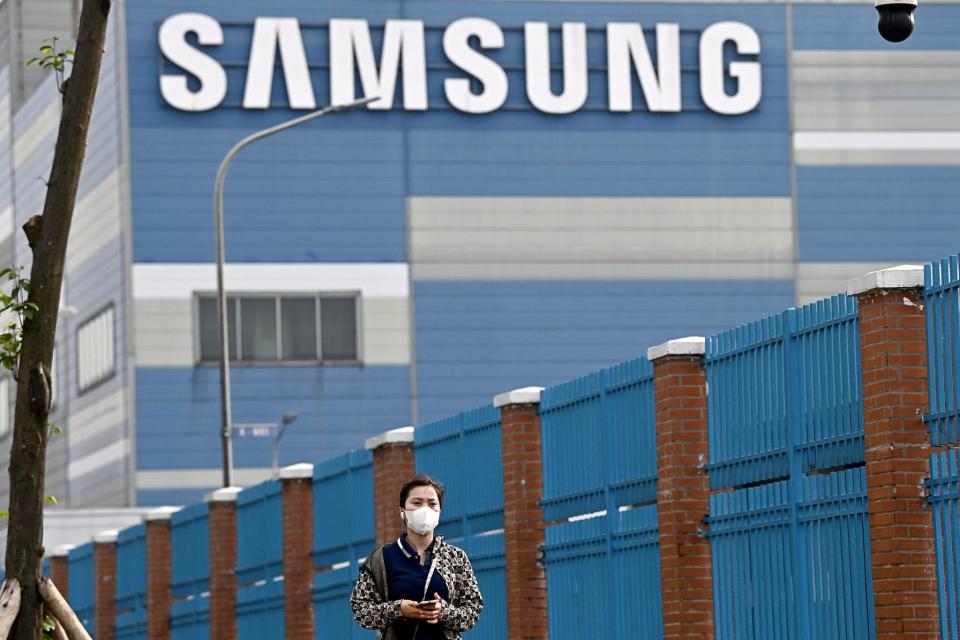David meets Goliath: Japan and Korea make startups work with large conglomerates in a twist on the Silicon Valley model

We all know how things work in Silicon Valley. Brilliant individuals with great ideas disrupt whole industries: Uber and public transport, Tesla and car-making, even Microsoft and the workplace itself. Older incumbents won’t, and can’t, adapt with the times—and so they disappear, replaced by the firms of today and tomorrow. It’s the way tech hubs are supposed to work.
Except that not all do.
The Silicon Valley model is tied closely to the economic model of the U.S.—and so difficult to replicate elsewhere. Silicon Valley excels in some aspects of frontier technology but lost its manufacturing edge long ago.
Around the world, policymakers are tweaking the idea of Silicon Valley to better match the idiosyncrasies of their own economies and carve out a unique advantage in key global markets.
Look to Japan and Korea for examples. Large conglomerates dominate the economies of both countries, whether Japan’s keiretsu or South Korea’s chaebol. Officials in Tokyo and Seoul don’t see the point of startups disrupting hugely successful and internationalized companies to the point that they disappear.
Instead, they want startups to work with giants like Hyundai, Samsung, SK, Sony or Toyota. It’s an instance of David meeting Goliath: an open innovation model where small firms and big conglomerates work together, aided by the government. This approach helps policymakers innovate in the design and manufacturing of tomorrow’s technologies.
Critics often accuse chaebols and keiretsu of stifling competition. But Japanese and Korean policymakers don’t want to work against the conglomerates that have helped their countries become two of the richest and most innovate economies in the world.
For a forthcoming book, titled Startup Capitalism, we studied how both Japan and Korea tried to foster this collaboration between startups and conglomerates. Government support for this “David and Goliath” relationship survived Japan and Korea’s frequent changes in political leadership; it’s now part of the fabric of both economies.
But why is this the case?
To begin with, startups get access to expertise, mentoring, and sales channels that they’d find difficult to develop on their own. Managers in a conglomerate like LG and Nissan have decades of experience in their core business sectors. Startup founders, generally, do not—instead relying on connections from VC backers or their own personal networks
Programs such as K-Startup Grand Challenge, anchored by Seoul’s Ministry of SMEs & Startups, or J-Startup, led by Tokyo’s Ministry of Economy, Trade and Industry, help to bridge this asymmetry in resources and access. Large firms join these government programs as judges, coaches, and would-be partners for startups. The Japanese and Korean governments thus act as matchmakers between entrepreneurs and leading conglomerates. (The U.S. policy approach, instead, is to only support startups.)
By taking part in these programs, Japanese and Korean startups also get access to capital and, often, exit strategies. Seoul and Tokyo pour billions of taxpayer dollars into supporting entrepreneurs via institutions like the Korea Venture Investment Corporation or the Japan Finance Corporation. Connecting these startups with chaebol or keiretsu that otherwise may not know about their ideas or products makes it easier for the big firms to decide whether to invest in their smaller counterparts.
So, startups clearly benefit from working with conglomerates. But what do larger companies get out of this?
The second advantage of this open innovation model is that the keiretsu and chaebol get access to new ideas and products. Several Japanese and Korean policymakers told us that they were worried that their national champions might go the way of Motorola or Nokia, former innovation powerhouses that got left behind. Working together with startups is one way that big conglomerates can develop new products and improve existing ones.
Ultimately, Japan and Korea want startups and conglomerates to work together to improve the economy. They see startups as drivers of innovation and growth in quality jobs; conglomerates help these smaller firms achieve that.
Conglomerates also provide manufacturing chops needed to make future technologies at scale. Silicon Valley long ago outsourced the production of key technologies, like semiconductors, elsewhere. Bringing those manufacturing abilities—that offer quality jobs and contribute to clusters of talent—back onshore is a key aim of the U.S.’s multi-billion-dollar CHIPS Act.
In fact, it seems this model of startups working together with large companies is now getting picked up in other parts of the world. In the AI sector, Microsoft is working with smaller partners like ChatGPT developer OpenAI and France’s Mistral. Both Amazon and Google have invested in developers like Anthropic; China’s big tech companies are also buying large stakes in the country’s AI startups. The Biden administration and the Von der Leyen Commission are both pushing startup-big firm collaboration as part of their respective industrial policies.
We should expect the Japanese and Korean model of startup-big firm collaboration to become more widespread. Governments are turning towards industrial policy and economic nationalism, and away from laissez-faire liberalism—in other words, closer to the policies long espoused by Tokyo and Seoul.
Silicon Valley isn’t dead. But its version of startup capitalism isn’t the only game in town anymore.
The opinions expressed in Fortune.com commentary pieces are solely the views of their authors and do not necessarily reflect the opinions and beliefs of Fortune.
This story was originally featured on Fortune.com

 Yahoo Finance
Yahoo Finance 